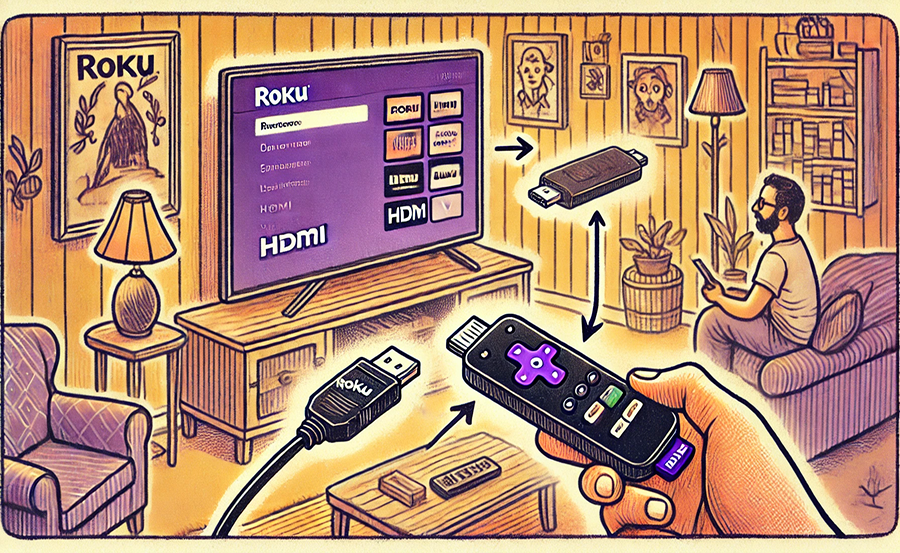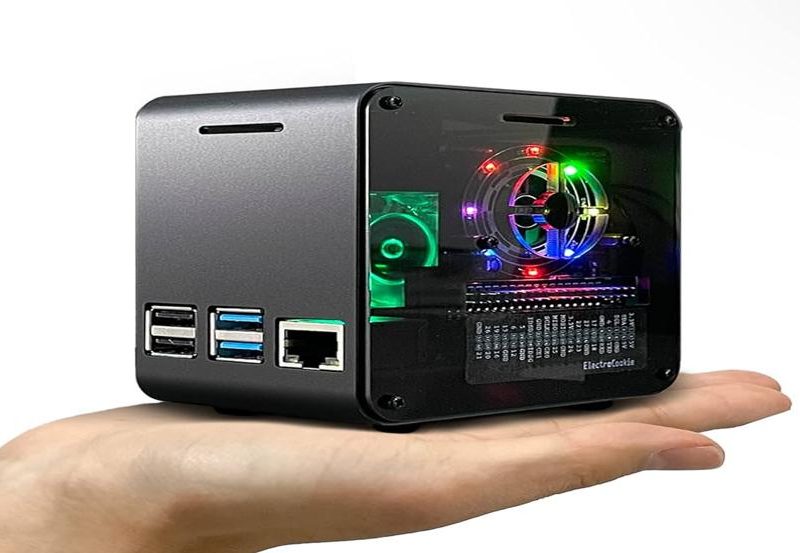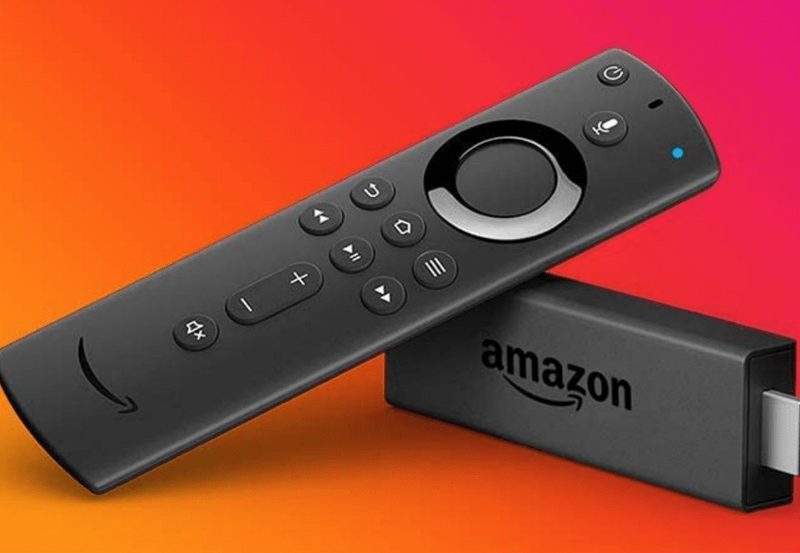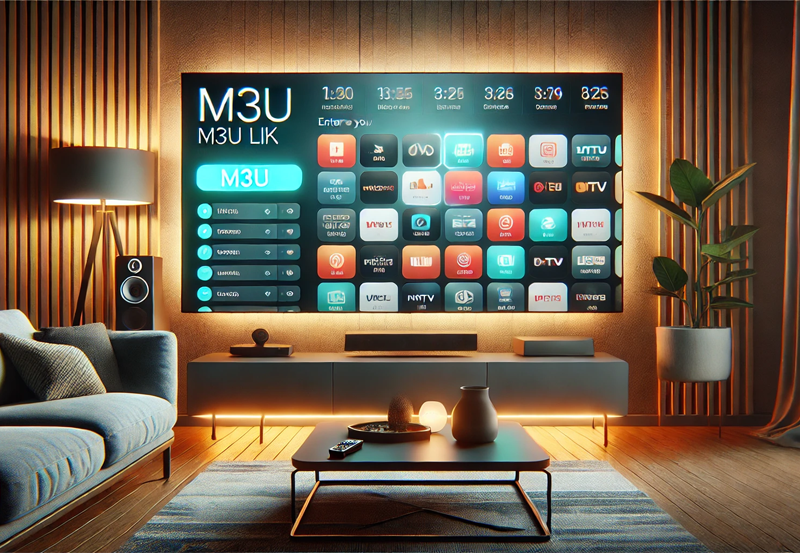Introduction: A Simple Path to Entertainment Bliss
In the ever-evolving world of digital entertainment, staying up-to-date with streaming technology can be a challenge, especially if you’re working with an older television. Fortunately, setting up a Roku device on a vintage TV isn’t as daunting as it might seem. With this straightforward guide, you’ll be on your way to enjoying a world of content, from IPTV for sports streaming to your favorite movies and shows. Read on to discover how to enhance your viewing experience while keeping things simple and breezy.
Understanding the Basics: What is Roku?
Before diving into the setup process, it’s essential to get acquainted with what Roku actually is. Essentially, Roku is a brand of hardware digital media players that offer easy access to streaming media content from various online services.
Why Choose Roku for Older TVs?
Even if you have an older model TV, Roku can be a great addition. These devices are designed to be user-friendly and are compatible with older television models, allowing you to bring new life to your existing setup without the need for a complete upgrade.
Variety of Content Available
Roku offers a vast array of channels and services. Whether you’re interested in IPTV for sports streaming or just looking to explore new shows, there’s something for everyone. It’s about mastering your IPTV entertainment without the typical hassles associated with setting up new technology.
Buy 1 Year IPTV Subscription and Enjoy Unlimited Content
The Flexibility of Roku Devices
There’s a Roku device to suit just about every need and preference. Options include the basic Roku Express, the portable Roku Streaming Stick+, and the more advanced Roku Ultra. Each device is equipped with its own unique features, ensuring you can find the perfect fit for your older TV setup.
Choosing the Right Roku Device for Your Older TV
Selecting the appropriate Roku device is a crucial step. Depending on the inputs available on your television, certain models may be more suitable than others.
Roku Express: The Cost-effective Choice
The Roku Express is ideal for TVs equipped with an HDMI port but lacking smart technology. It’s affordable, straightforward, and works efficiently for basic streaming purposes.
Considering Connectivity Types
If your TV doesn’t have an HDMI port, you’ll need to ensure compatibility using composite cables. Occasionally, adapting equipment might be necessary. Understanding these nuances can help avoid frustrations during installation.
Optional Accessories
To facilitate an easier transition, consider investing in an HDMI-to-composite adapter. This is an invaluable accessory if your older TV sports only RCA composite ports.
Step-by-Step Guide to Setting Up Your Roku
With the right device in hand, it’s time to start the setup process. Follow these clear steps to achieve streaming success on your older TV.
Step 1: Connection Basics
Begin by connecting your Roku device to your TV. If your television has an HDMI port, simply plug the Roku into it. For composite compatibility, utilize your adapter to ensure a stable connection.
- Ensure your TV is turned off before making connections.
- Select the correct HDMI or composite input on your TV.
- Connect the Roku power adapter to a nearby outlet and to your Roku.
Step 2: Power Up Your Devices
Turn on your TV and ensure it’s set to the correct input channel where you’ve connected the Roku device. Wait briefly as your TV detects the Roku signal, displaying the Roku home screen.
Step 3: Initial Setup and Network Connection
Using the supplied Roku remote, navigate through the on-screen instructions to connect your Roku device to a wireless network.
- Choose your home Wi-Fi network from the list.
- Enter your Wi-Fi password using the on-screen keyboard.
- Allow the device to connect to the internet and download any necessary updates.
Optimizing Your Streaming Experience
After successful setup, you’ll want to make the most of your Roku device by personalizing settings and downloading your preferred channels.
Customizing Display Settings
Roku devices often auto-detect optimal display settings, but you can adjust the resolution under “Settings” if needed. Ensure it matches the native resolution of your television for the best experience.
Installing Channels and Apps
Head over to the Roku Channel Store and browse a plethora of entertainment options. From major streaming services to specialized IPTV for sports streaming, you have a wide array of content awaiting installation.
- Use the search function for specific channels.
- Add channels to your lineup for quick access.
- Revisit and rearrange channels as your preferences evolve.
Diving into IPTV: A Game Changer for Sports Enthusiasts
Intuitive interfaces, ease of access, and diverse programming make IPTV services an ideal choice for dynamic sports streaming. Let’s explore how to install IPTV and make the most of this robust application.
Installing IPTV Apps on Your Roku
IPTV apps aren’t directly available in the Roku Channel Store, requiring you to use third-party applications like Plex or Kodi. This part involves a bit more configuration but remains straightforward with guidance.
Setting Up IPTV for Sports Streaming
Once your third-party application is in place, configure your IPTV service provider details. This step varies depending on the service you’ve subscribed to, but typically, you’ll enter an M3U playlist or similar configuration file to access live sports channels.
Expanding Your Content Library: Tips and Tricks
Unlock the potential of your Roku by tailoring your content library to suit your unique tastes. Here are some creative ways to master your IPTV entertainment.
Maximizing Free Content
Take advantage of free streaming channels available on Roku. These feature an extensive range of genres without any additional subscription costs.
Continually Explore New Services
Roku frequently updates its channel offerings. Regularly check for newly added streaming services to expand your content library effortlessly.
Taking Advantage of Deals and Offers
Many premium channels periodically offer free trials. Use these opportunities to sample content beyond your standard subscriptions.
Adding Personal Touches to Your Roku Dashboard
Personalize your Roku home screen by rearranging channel tiles, adding shortcuts, and setting custom backgrounds for a personalized touch.
Managing Channel Tiles
Long-click the channel tile you wish to move and use directional arrows on your remote to place it where desired.
Setting Unique Backgrounds
Add a splash of your personal style by selecting a theme from the “Themes” menu. This customization sets your dashboard apart.
Overcoming Common Setup Hurdles
Even the most seamless installations can encounter hiccups. Here’s how to tackle frequent issues effectively and without frustration.
Sound and Video Troubleshooting
If your TV struggles with sound or image problems post-setup, double-check connections and verify your TV’s input settings are correct. Ensure cables are firmly seated.
Network Connection Issues
If connectivity proves problematic, verify your Wi-Fi password is entered correctly and your network signal is strong. Occasionally, a router reset can resolve lingering issues.
Going Forward: Embracing Future Technologies
As technology progresses, understanding how to adapt your older TV to new devices ensures you never miss a beat in digital advancements. Learning these skills sets a foundation for exploring future enhancements seamlessly.
FAQs: Your Burning Questions Answered

Do I Need a Specific Roku Model for Older TVs?
The Roku Express or HDMI-compatible models with adapters generally work well with older TVs.
Can I Use IPTV Services on Roku Devices?
Yes, with third-party apps like Plex or Kodi. They require additional configuration to access IPTV services effectively.
Are There Long-term Costs Involved with Roku?
Beyond the initial purchase, many free channels are available, although subscription services incur their own fees.
What If My TV Doesn’t Have an HDMI Port?
You can use composite cables with an HDMI-to-composite adapter to connect your Roku device.
Is Roku Compatible with All TVs?
Most standard TVs are compatible, but older models lacking essential ports may need adapters.
How Can I Improve Streaming Speeds on My Roku?
Ensure a strong Wi-Fi connection, limit other devices’ network use during streaming, or even consider an Ethernet cable for stability.
How to Deal with IPTV Compatibility Issues on Different Devices





